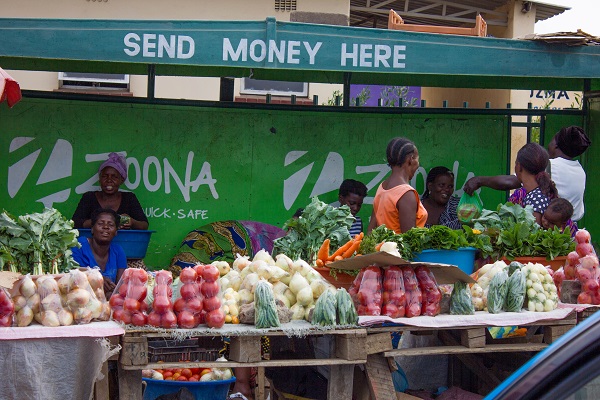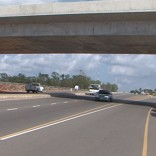Germany backs EU economic partnership agreement with SADC
Doing business in Mozambique – Learning from Zoona

Mozambique’s current economic crisis might slow down foreign direct investment, but doing business in Mozambique can be profitable if you learn from others who have gone before. You just need to find the right niche.
Denise Cortes-Keyser is the CEO of Zoona, an African platform for emerging entrepreneurs which provides money transfers and other services to consumers without bank accounts. Operating since 2009 in Malawi and Zambia and since July this year in Mozambique, Zoona looks to close a US$15 million round by the end of 2016.
We interviewed Denise, the only businesswoman speaker in the FT Mozambique summit last week, and learned some tips for starting a business here. Being the only businesswoman speaking at the conference made it inevitable that we would talk about women in business – and poverty.
National strategies as business opportunities
One great tip, Cortes-Keyser says, is to look for your niche in national strategies, and find where your business can fit in with the country’s priorities. Also, look at population statistical data for where your company can enter a vacuum of need that creates an opportunity.
“The Uber concept applied to local remittances,” as Zoona is known, identified some key characteristics in the Mozambican market which made it a suitable response. The numbers speak for themselves. Only 24 percent of adults in urban areas have access to formal financial services, with much lower access in rural areas, and even lower access among women. And about 70 percent of the economy consists of subsistence agriculture, and there are main corridors to other African neighbours, which, according to Cortes-Keyser, “need to be filled with financial services for monetary transactions”.
Zoona also succeeded in gaining credibility with Mozambican authorities by addressing two main values it promotes: financial inclusion and women’s financial empowerment.
The National Strategy for Financial Inclusion was launched earlier this year, with the support of the World Bank. It was designed to increase access to financial services from 24 percent to 60 percent of the population by 2022.
Zoona came in just in time to reach this increasing pool of customers. The vast expansion of mobile phones throughout Mozambique’s rural areas brought with it opportunities to make financial services available. These in turn help spark small businesses, improve the ability of households to invest in durable assets and education, and transfer and receive money from relatives.
Women are more motivated
‘The Girl Effect Accelerator’ has identified Zoona as one of the 10 companies worldwide best suited to help lift girls and women out of poverty, but when we asked Cortes-Keyser why Zoona focused on girls and women, she said it wasn’t a case of making a “good poster for donors”.
Many women in African societies don’t have the opportunity decide their own career paths, she said, but are simply limited to taking care of their children.
“When we started interviewing agents, we had many 20-year-old women with 2 to 3 children. They didn’t have jobs, no one believed in them. They believed that after having babies, life is gone,” Cortes-Keyser said.
The desire to change that, she explains, is what made female agents in Mozambique “more engaged, more motivated, wanting more to be financially free. These are the people we want to target”.
Now, Zoona’s biggest success stories in Mozambique are about women who have up to 15 employees working in their small businesses.
Learn the culture, adjust yourself accordingly

Another important tip for investors wanting to do business in Mozambique is to “learn the culture”. Compared with other African countries Zoona operates in, Mozambique doesn’t have much of a savings culture, but rather one about “keeping money in a safe place and withdrawing it the next day”. Realising this helped Zoona craft a product that people would actually need.
Zoona also uses a collaborative approach, rather than one that is enforced from outside.
“A Zoona outlet will be operated by a credible person in the community. This is completely different from catching a bus and arriving at a fancy bank branch,” Cortes-Keyser says. But perhaps waiting in line in a bank is no-one’s culture. “We want to make it easy for people to approach us,” she concludes.
Lastly, she advises looking businesslike, and not like someone who has come “to take the money and run”. But adjusting to the local culture doesn’t mean going against your own values. “There are no shortcuts. Feel the pain. You won’t have to bribe anyone – we didn’t.”
By: Matan Rosenstrauch











Leave a Reply
Be the First to Comment!
You must be logged in to post a comment.
You must be logged in to post a comment.